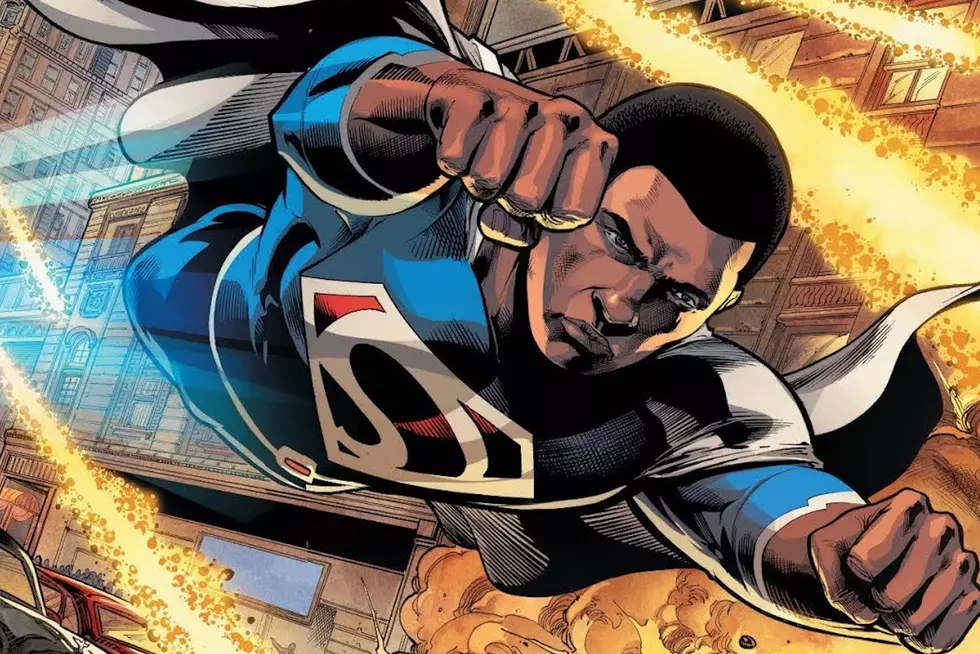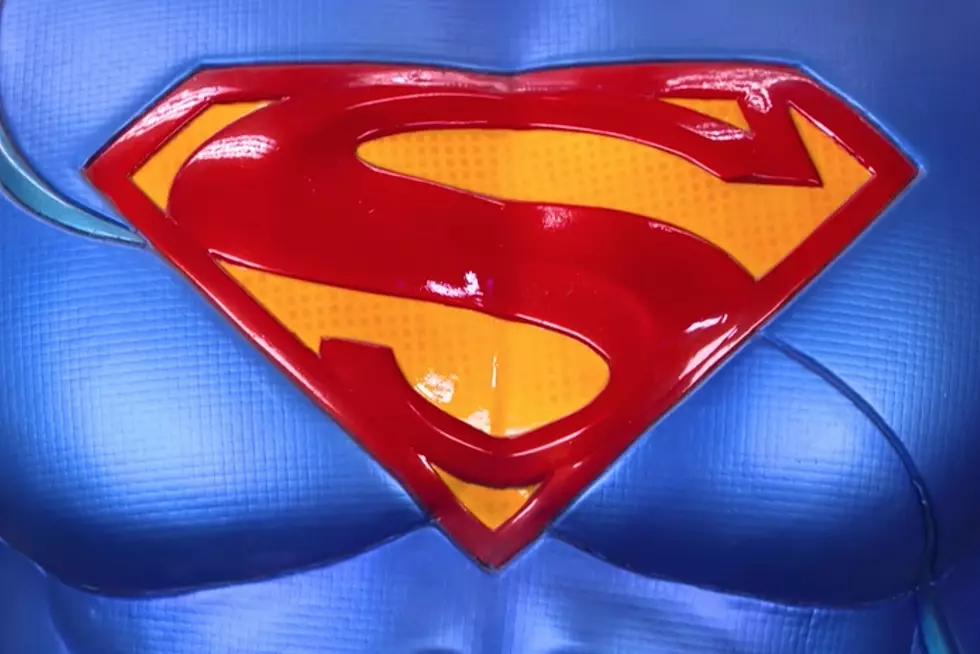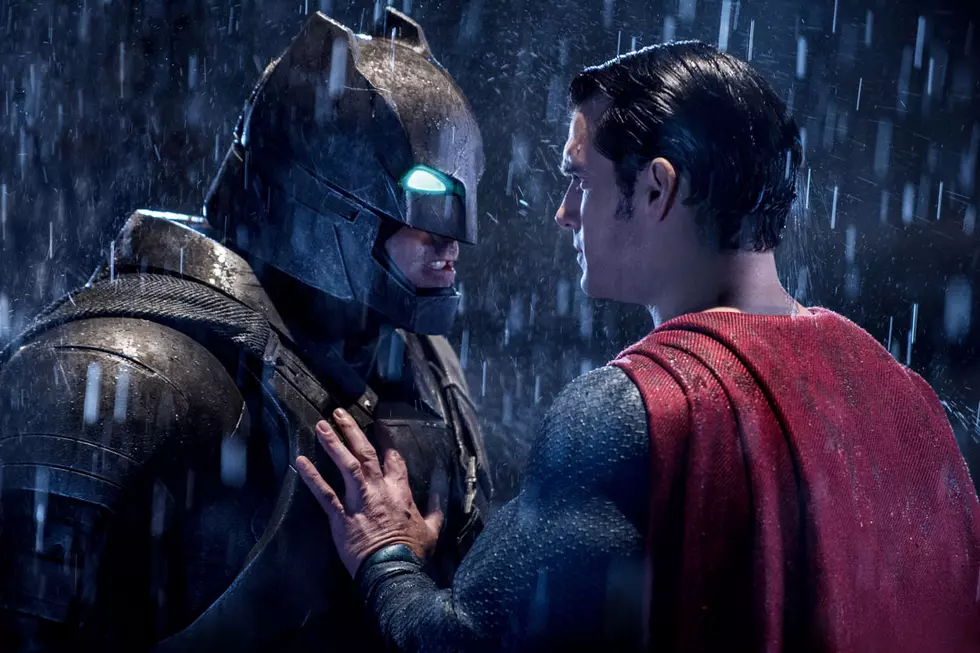
‘Superman vs. the Elite’ is the First DC Animated Movie That’s Better Than Its Source Material

I wasn't expecting a whole lot out of Superman vs. the Elite, the latest from DC's line of direct-to-video animated features. With a few notable exceptions, the "DC Universe" line hasn't really thrilled me, and I had absolutely no desire to spend a couple of hours revisiting the story this one's based on, Action Comics #775's "What's So Funny About Truth, Justice and the American Way," by Joe Kelly, Doug Mahnke and Lee Bermejo. Then I watched it, and I have to say that it's worth checking out.
This might just be the first of DC's animated movies that's actually better than its source material. Of course, that might sound like damning it with faint praise when you consider how little I care for that original story. I'll admit that I liked it a lot when it first came out, and it's often cited as one of the high points of Kelly's turn-of-the-century run on Action. For me, though, it's definitely one of those things where the more you think about it, the worse it gets. In fact, I'd even say it's probably my least favorite story with a title based on an Elvis Costello song, and that's a surprisingly crowded field.
Of course, that might sound like damning it with faint praise when you consider how little I care for that original story. I'll admit that I liked it a lot when it first came out, and it's often cited as one of the high points of Kelly's turn-of-the-century run on Action. For me, though, it's definitely one of those things where the more you think about it, the worse it gets. In fact, I'd even say it's probably my least favorite story with a title based on an Elvis Costello song, and that's a surprisingly crowded field.
The story involves a bunch of paper-thin analogues of the Authority (who are themselves pretty thin analogues of the Justice League) showing up and making a big deal about how they're going to kill super-villains, causing Superman to have a Moral Crisis™ over whether his code against killing was too old fashioned for this modern world of Grand Theft Autos and Jason Stathams. Spoiler Warning: Superman beats the Fauxthority because he was right all along.
It's a confrontational and weirdly defensive story that's based around the idea that Superman's morality needs to be defended, and when that's your starting point, you've already pretty much lost whatever argument it is you're having. The best Superman stories don't attempt to justify his actions, they let the actions themselves provide the justification. The fact that this is a story where Superman essentially lectures a proxy version of the Authority, another group of equally fictional characters -- and by extension, the fans who preferred their comic -- makes it read like the worst kind of fan-fiction, to the point where you'd half expect the next issue to include Superman giving a stern talking-to to the guy who picked on Kelly in the third grade. And to make matters worse, those characters never left. The Elite kept showing up, eventually turning into a covert black-ops arm of the Justice League in a comic that was also created by Kelly and Mahnke. Like Lobo, they actually became the thing they were created to parody.
Incidentally, this wasn't the first time this exact sequence of events happened, either. Kingdom Come pretty much boiled down to "Superman is better than all the Image characters who kill the villains," and Magog, who was designed to be a parody of Cable, eventually wormed his way into the Justice Society through machinations that defy all attempts at understanding.
What I'm getting at here is that I don't think that comic is very good. But when I say that the movie's better, I don't just mean that it's better by default. Even though I don't particularly think the question it asks is one that needs answering, it does a much better job of doing so, and of exploring those characters in a way that makes you care about the fight and what's at stake.

In a lot of ways, it's just a pure question of space. Kelly's adapting his own work for the movie, and while the original story was oversized at 38 pages, it's still one single issue. Unlike previous DC animated features, which were geared around condensing stories like All Star Superman or "Tower of Babel," Kelly had the luxury of being able to expand on the original, and he makes the most of it.
For example, the bad guys don't just show up out of nowhere and start issuing ultimatums. There's a much slower buildup that involves Superman and the Elite actually starting out on good terms, having a few team-ups while Superman gives them tips on being better heroes. Their eventual heel turn is pretty abrupt -- and gets explained with "oh, Manchester Black was a total psychopath all along" -- but the fact that we get to see the transition at all does a lot to make them seem a little less one-dimensional. There are times when Kelly even goes out of his way to make their actions feel almost justified, although he manages to do so without ever questioning the faith that we as an audience are meant to have in Superman's morality.
Superman himself also benefits from the extra space. There' a lot of great interaction with Lois that wasn't present in the original story, and she's a consistently fun character to watch on screen. It does a lot to keep him from seeming like a moralizing jerk when you're able to watch the way he reacts to the Elite in different situations, from his initial friendliness to his disappointment, and finally to his anger and resigned determination in the conflict at the climax of the movie. Unfortunately, it's a movie in which Superman fails to save a bunch of people from being killed by various baddies -- including the Atomic Skull and the Elite themselves -- but that's a problem that's necessitated by the premise.
Kelly even does a nice job of setting up Superman's relationship with the world around him, too, and that helps to soften the defensiveness of it all. One of the first scenes is played out in the form of a hokey cartoon that Superman's licensed his image to in order to raise money for charity, and while it's still the first part of "you think Superman sucks but GUESS WHAT HE DOESN'T," it's done in a really clever way that makes it forgivable.

Along the same lines, the actual opening titles are done with footage from Super Friends that's been altered to look something like a Sex Pistols flyer, which is really distinctive and does a nice job of tying into the themes of the movie in a visual form.
As far as the visuals go in the rest of the movies, the character models are slightly different from the Bruce Timm Justice League designs that I still think of as the standards, but their exaggerated traits are played pretty well, and the action looks great. There's a scene where Superman takes out a bunch of planes that are about to drop nuclear bombs (while saving the pilots) that's just beautiful to see. It's good stuff.

It's certainly not perfect. As much of an improvement as Kelly's script for the movie is, he definitely drops a few pretty awful lines in there. My favorite is Coldcast yelling the phrase "They got microwave popcorn in your terror-ass country?!" at a bunch of Bialyan soldiers, which has got to be the most nonsensically awful action-movie smack-talk since Vin Diesel said his catchphrase to a boat in XXX, but it's not the only one. Kelly even leaves Superman's "How does it feel to be deconstructed?" line from the original comic in, and that's so hilariously on the nose that it might actually be in a nostril. But most of what's there works, and works in a way that the original comic didn't.
If you liked the original story, you'll probably get a kick out of this version too, and if you didn't, maybe it's time to give it another shot. Either way, I'm with the Hat on this one: Thumbs up.

More From ComicsAlliance









